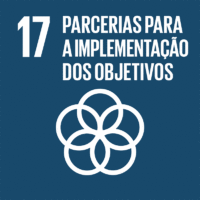Ciência_Iscte
Publicações
Descrição Detalhada da Publicação
Oxytocin and vasopressin modulation of prisoner’s dilemma strategies
Título Revista
Journal of Psychopharmacology
Ano (publicação definitiva)
2020
Língua
Inglês
País
Reino Unido
Mais Informação
Web of Science®
Scopus
Google Scholar
Esta publicação não está indexada no Overton
Abstract/Resumo
Background: The neuropeptides oxytocin and vasopressin have been repeatedly implicated in social decision making by enhancing social salience and, generally, cooperation. The iterated and sequential version of the prisoner’s dilemma (PD) game is a social dilemma paradigm eliciting strategies of cooperation versus competition. Aims: We aimed to characterise the role of PD players’ sex, game partner type (computer vs. human) and oxytocin or vasopressin inhalation on the player’s strategy preference. Methods: Participants (153 men; 151 women) were randomised to intranasal 24 IU oxytocin, 20 IU vasopressin or placebo, double-blind, and played the PD. We examined main and interactive effects of sex, drug and partner type on strategy preference. Results: We found a pervasive preference for a tit-for-tat strategy (i.e. general sensitivity to the partner’s choices) over unconditional cooperation, particularly when against a human rather than a computer partner. Oxytocin doubled this sensitivity in women (i.e. the preference for tit-for-tat over unconditional cooperation strategies) when playing against computers, which suggests a tendency to anthropomorphise them, and doubled women’s unconditional cooperation preference when playing against humans. Vasopressin doubled sensitivity to the partner’s previous choices (i.e. for tit-for-tat over unconditional cooperation) across sexes and partner types. Conclusions: These findings suggest that women may be more sensitive to oxytocin’s social effects of anthropomorphism of non-humans and of unconditional cooperation with humans, which may be consistent with evolutionary pressures for maternal care, and that vasopressin, irrespective of sex and partner type, may be generally sensitising humans to others’ behaviour.
Agradecimentos/Acknowledgements
--
Palavras-chave
Neuropeptides,Game theory,Cooperation,Competition,Theory of mind,Cognitive empathy,Prisoner’s dilemma,Mentalising
Classificação Fields of Science and Technology
- Ciências Biológicas - Ciências Naturais
- Psicologia - Ciências Sociais
- Sociologia - Ciências Sociais
- Antropologia - Ciências Sociais
Registos de financiamentos
| Referência de financiamento | Entidade Financiadora |
|---|---|
| UID/MAT/00006/2019 | Fundação para a Ciência e a Tecnologia |
| R01 MH084068-01A1 | National Institute of Mental Health |
| UID/CEC/50021/2019 | Fundação para a Ciência e a Tecnologia |
| DSAIPA/DS/0065/2018 | Fundação para a Ciência e a Tecnologia |
| LISBOA-01-0145-FEDER-030907 | Fundação para a Ciência e a Tecnologia |
| 292/16 | Bial Foundation |
| IF/00787/2014 | Fundação para a Ciência e a Tecnologia |
| FP7-PEOPLE-2013-CIG-631952 | Comissão Europeia |
| UIDB/03125/2020 | Fundação para a Ciência e a Tecnologia |
| UL1TR000454 | National Institutes of Health |
Contribuições para os Objetivos do Desenvolvimento Sustentável das Nações Unidas
Com o objetivo de aumentar a investigação direcionada para o cumprimento dos Objetivos do Desenvolvimento Sustentável para 2030 das Nações Unidas, é disponibilizada no Ciência_Iscte a possibilidade de associação, quando aplicável, dos artigos científicos aos Objetivos do Desenvolvimento Sustentável. Estes são os Objetivos do Desenvolvimento Sustentável identificados pelo(s) autor(es) para esta publicação. Para uma informação detalhada dos Objetivos do Desenvolvimento Sustentável, clique aqui.

 English
English



